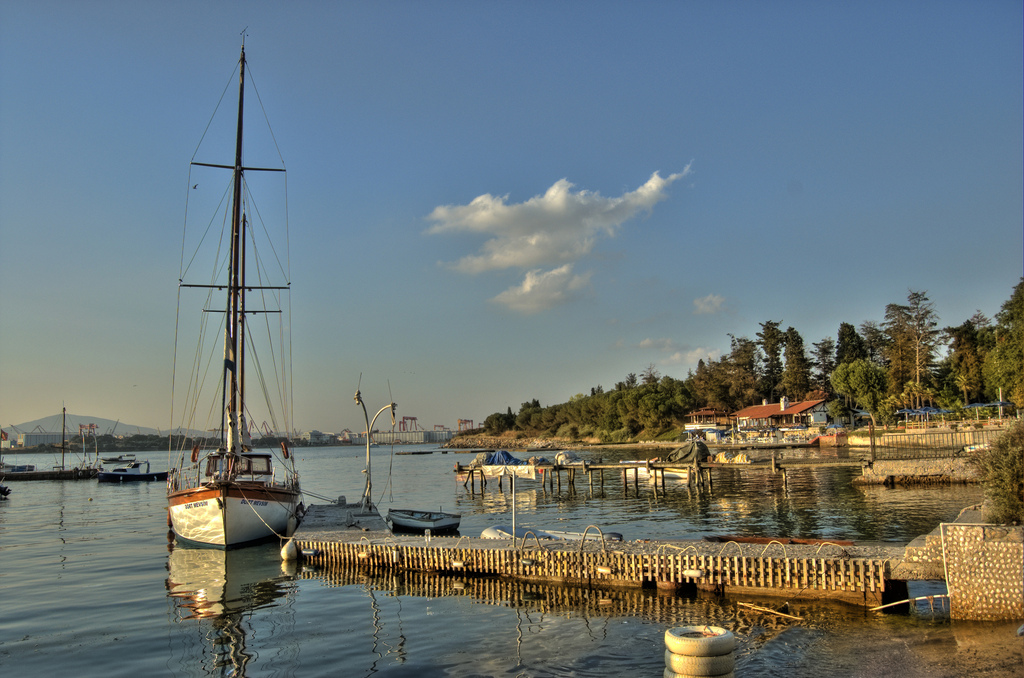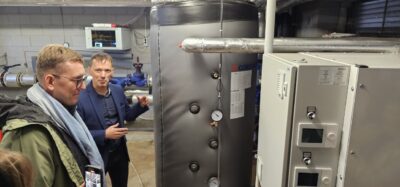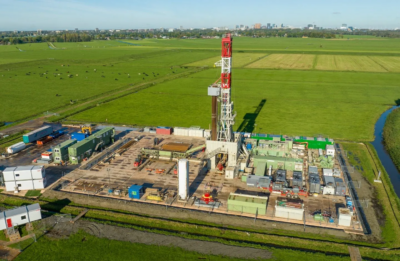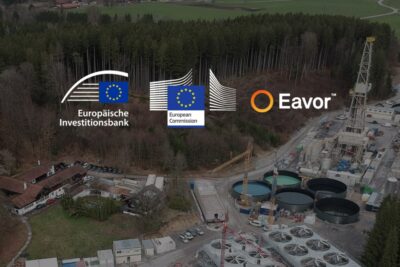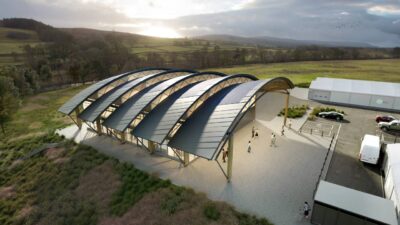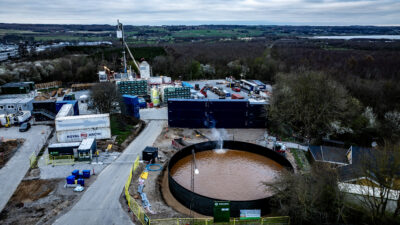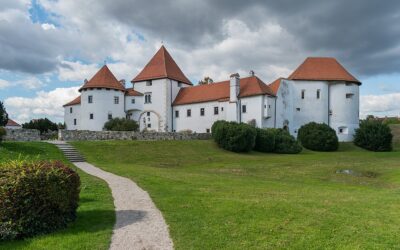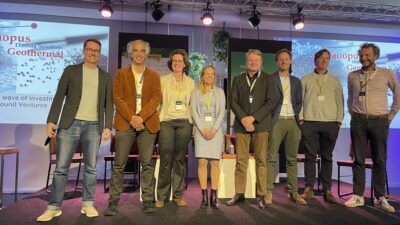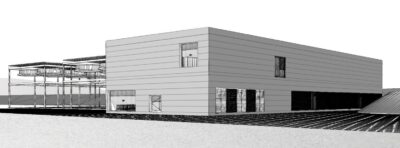Interview with the CEO of Imparator Enerji on geothermal development in Turkey
In an interview with Bahay Ozcakmak, CEO of developer Imparator Enerji, we learned about the company's Tuzla geothermal power project and the company's view on the overall development activities in Turkey.
In more great news out of the geothermal sector in Turkey, last week, Wasabi Energy announced its Turkish subsidiary Imparator Enerji had completed a detailed pre-feasibility study on a 30MW expansion at the Tuzla project and was finalising arrangements to complete the transaction in coming weeks.
On the sidelines of GeoPower Turkey conference in Turkey, TGE has arranged an exclusive interview with Bahay Ozcakmak, the CEO of Imparator Group.
Firstly, thank you Bahay for agreeing to this interview and congratulations on the great news on the progress Imparator has made with the Tuzla geothermal project.
Could you provide us with a short update on the state of the geothermal industry in Turkey?
Thank you Alex, it is great to be speaking with you in Istanbul again. Since last years event (GeoPower-Turkey) the geothermal sector in Turkey has continued to grow in leaps and bounds. Recent news that the 80MW Kizildere-2 plant commenced commercial operations, and only a few weeks earlier that a Atlas Copco led consortia had secured another 80MW order, really entrenches Turkey as a major up and coming geothermal market, globally.
The geothermal sector in Turkey certainly seems to be growing rapidly. Do you see growth in the sector to continue?
The drivers for developing renewable energy based power generation infrastructure in Turkey, continue to strengthen. The feed-in tariff for geothermal ($105/MWh) is often cited as being too low to encourage investment, however activity in the sector would suggest otherwise. The major competitive advantage of developing geothermal projects in Turkey is that project development costs are very low. There is a highly skilled local workforce and low construction costs that together with high quality geothermal resources, make Turkey a great place to develop geothermal projects. In some ways, Turkey has the best of both worlds. In general terms, Turkey has the skill-base and infrastructure typical of mature economies, without the difficulties of operating in frontier jurisdictions, however still maintains a cost-base more typical of an emerging economy.
Recently TGE has reported entry into the Turkish geothermal sector by several foreign companies. This would seem to signal further growth in the sector.
Imparator has been operating in Turkey for almost three years. Whilst news of our interest in the Tuzla project has been well publicised, we have a strong strategy to expand our investments in Turkey further, particularly within the geothermal sector. Indeed I can attest to the level of interest in the sector as Imparator has fielded interest from several large international companies looking to expand their business into Turkey. Upon completion of our interest in Tuzla, we expect Imparator will be the first foreign owned company to own and operate a geothermal power plant project in Turkey.
From the latest Wasabi announcement, it sounds like Imparator is increasingly confident about the scale of the geothermal resource at the Tuzla project.
Yes, we are very confident. The Tuzla project has been quite extensively drilled with over 20 wells in the license area, of which half could be considered deep wells. The existing plant on site has been operating for almost 4 years now, so we have a database of real life resource performance data that is obviously quite useful when attempting to determine the commercial nature of a geothermal resource. At Tuzla, we are fortunate to the extent that we have a very large, and unusually shallow geothermal resource which means once an investment decision is made for an expansion project, the well field can be drilled quickly and relatively cheaply.
Can you tell us more about Imparator’s expansion plans for Tuzla.
As recently announced, we’ve just completed pre-feasibility study to evaluate the technical and commercial considerations for a conceptual 30MWe expansion project. Whilst there is still significant work to be done, including securing JV and regulatory approvals, we were highly encouraged by the estimated project costs, particularly how quickly the project could be delivered once the project reaches financial close.
In relation to your comment about activity within the Turkish geothermal sector, do the results of your feasibility study support the case for developing geothermal projects in Turkey?
Very much so. We’ve benchmarked the development costs for our proposed 30MW plant against third-party costs for developing large-scale geothermal projects globally, and our costs are very clearly in the lowest cost quartile. A large part of the cost savings we expect to realise is in the form of very low drilling costs. As part of the study we conducted, Imparator received several proposals from reputable drilling companies indicating a full-diameter production well could be drilled, cased and tested for around $1million.
That is quite interesting. We see well costs of $5 – $10million in Europe, some above $15 million.
Even in highly efficient jurisdictions like the U.S., well costs above $3million are not uncommon. What we have at Tuzla are very inexpensive (shallow) wells in a very inexpensive operating environment. The DOE and other organisations with expertise in the geothermal sector often quote typical well field costs as 50 – 70% of total project costs. At Tuzla, we expect to be able to keep well costs below 25% of project costs, potentially below 20% if we drill all the required wells in a single drilling campaign.
There has been discussion at the conference today that the rate of the feed-in tariff may be increased. What are your expectations?
At Imparator, we always use the basic rate of the geothermal feed-in tariff in all our internal modelling and feasibility work. We do however recognise, a higher tariff will encourage further development of the sector. Large geothermal projects like our proposed TGPP-2 project at Tuzla have a strong cash flow profile, with underlying annual earnings in the order of $20 million. However the majority of geothermal resources in Turkey are a lower temperature, and will generally be sufficient to support smaller scale developments. For this reason, if Turkey is to realise its goal of developing all of its geothermal resources by 2023, a more generous feed-in tariff for lower enthalpy resources would be beneficial in achieving this objective.
You mentioned earnings in the order of $20million for the expansion project at Tuzla and capex costs in the lowest quartile. What is your estimate of total project cost for the proposed expansion project at Tuzla?
For commercial reasons, we have not released the full details of our pre-feasibility study, however, I can tell you we are looking at an installed total project cost well under $100m for the 30MWe project, inclusive of transmission and well field. In the next year or so we will be working closely with our partner to progress the project towards a bankable feasibility study.
Thank you Bahay. Thanks for providing an update on Imparator’s activities as well as sharing your insights into the state of the geothermal sector in Turkey.
My pleasure. I look forward to discussing progress over the next 12months at GeoPower Turkey in 2014.
